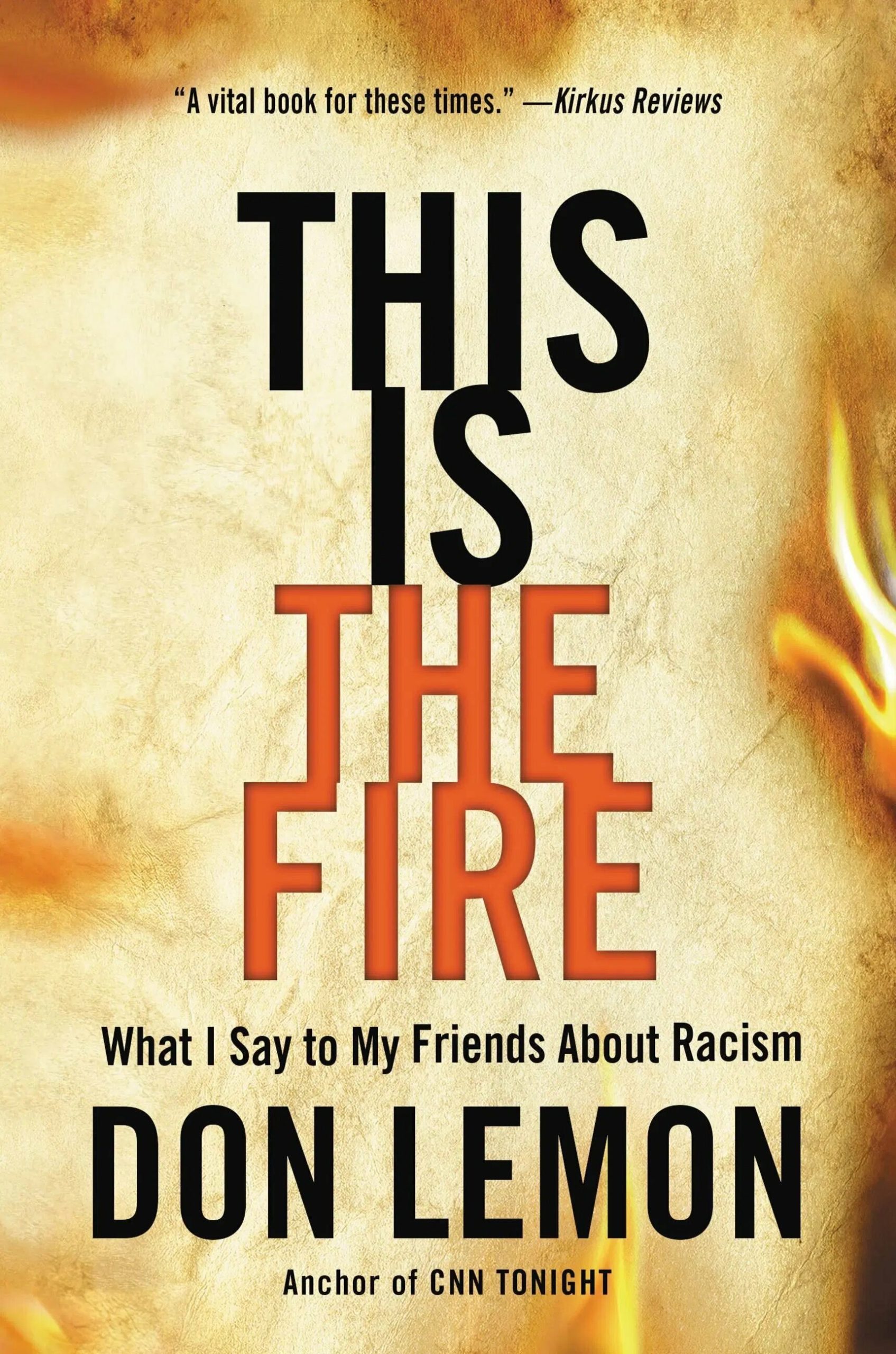
If we ever get past this difficult time, and find a way for our society to continue in an orderly fashion without the scourge of racism, there will be a body of literature that participated in bringing about profound changes throughout our society. At the center of that body of literature will be a no-holds-barred book by a gay Black man from Baton Rouge, Louisiana, who works for an international media company and is engaged to a white man from the East End of Long Island.
In case anyone has missed it, Don Lemon’s “This Is the Fire” is a philosophical continuance of a book by another gay Black man, James Baldwin’s “The Fire Next Time.” Other writers have addressed the matter of systemic racism in this country more gently, Isabel Wilkerson’s “Caste” for example, but Lemon has cried out as the matter has pierced his own skin.
There is no way anyone can read Lemon’s book without appreciating, like it or not, how fully the lives of all Americans have been informed by the “slings and arrows of outrageous fortune” of systemic racism. It comes as no surprise to anyone who listens to Lemon’s late-night television program that the echoes of this beautiful book resonate and resound in even the most resistant corridors of conscience. “This Is the Fire” imparts new meaning to the words “a must-read.”
Of course, “This Is the Fire” comes to the matter of white superiority in major events today: the barbarian January 6 attack on the Capitol, the nationwide efforts to gerrymander the reduction of votes by marginalized Americans, the myriad gratuitous physical and verbal attacks on Blacks, Hispanics, LGBTQ people, Asians, immigrants and others who do not fit the Anglo-European Caucasian paradigm racists of all kinds envision as the originalist and forever model for the United States.
If the first step in addressing any ill is its recognition, this book flat-out informs every reader of the insidious disingenuousness of a former president’s remark that this country does not suffer from ubiquitous white supremacy. And it shows inescapably that America cannot possibly realize its most noble aspirations until every vestige of the ideas of supremacy and inferiority are extricated from our deeds and thoughts about the intrinsic value of every human being.
If you do not like to read but are willing to listen to Lemon’s reading of Chapter 5 of “This Is the Fire,” I cannot recommend strongly enough that you do that. Packed into this chapter, in writing far better than the best I’ve been able to do in almost 50 years of books and articles, is the story of white supremacy in the United States. The life of General Williams Carter Wickham, the centerpiece of the chapter, brings together the antebellum, Civil War and post-Civil War history in both the South and the North, the lives of Black and white Americans, parents and children of mixed “races,” people of many backgrounds, the ways in which white supremacy affects uneducated people and intellectuals and the mythology of literature, movies, products and everything else that informs the deepest and most enduring perceptions in our society. It is not possible to read or listen to this chapter and not be tormented by the outrageous assertion of a former president of the United States that systemic racism does not exist in our society.
Lemon’s knowledge of historical events and their protagonists is exceptional. From my own modest efforts to deal with such matters, it is easy to conclude that Lemon has been collecting bits and pieces of relevant information his entire life. One must be obsessed with the subject being treated for this to occur. Every object on a landscape, every street and structure in a village or city is an immense deck of flash cards to anyone with an architect’s soul.
For Lemon, every incident of his or another person’s interactions is overflowing with hierarchical implications. What might seem to many an insignificant event in a Sag Harbor store where he purchased a few trays and believed a white woman was being treated more generously than he impacted on Lemon sufficiently to cause him to return the trays to the store. I did not judge Lemon’s conduct approvingly or otherwise, but I am white and what he experienced might not have affected me. I realized reading this book that, although I have had every conceivable public and private experience with Black people throughout my life, I can only put my antenna up so far, much as I would like it to go farther. A white person may have classmates, fellow campers, personal friends in his or her home, co-workers, business and professional relationships and every other form of interaction with Black people but a white person can never know precisely how a Black person feels walking down the street, shopping in a store, attending a gathering, being followed by a police car, or anything else. Lemon’s book has helped me fill the gaps in my understanding of this essential aspect of the world in which I live.
It is no surprise that “This Is the Fire” is No. 1 on the New York Times bestseller list. It would be unfortunate if the magnum opus of the matter of systemic racism did not achieve such status.
A wonderful way to receive this book is to listen to the Audible recording of Lemon reading it. He does so without unnecessary emphasis or other dramatic efforts. The voice of Lemon’s writing often comes through in his use of special, but not contrived, choice of words or the literary force that only a well-composed analogy or metaphor can provide. Difficult as the subject of racism in our society is, I cannot imagine anyone not appreciating Don Lemon’s “This Is the Fire.”
James M. Kramon is a co-founder of Kramon & Graham Attorneys at Law. He lives in Westhampton Beach.